AXIOS: UNITED NATIONS Climate Change COP 28 Dubai 2023 Part 4
Axios AM Thought Bubble: Inside the climate deal
![]() Mike Allen <mike@axios.com> Axios AM Thought Bubble
Mike Allen <mike@axios.com> Axios AM Thought Bubble
Alerts
PRESENTED BY EXXONMOBIL
Mike Allen <mike@axios.com> Axios AM Thought Bubble
Dec 13, 2023
Axios climate expert Andrew Freedman, after two weeks in Dubai, is here with his snap analysis of today’s historic UN climate summit agreement.
- Sign up for Axios Generate for daily climate insights.
- Smart Brevity™ count: 344 words … 1 min. Edited by Noah Bressner. Thanks to Chris Speckhard for the copy edit.
1 big thing: Historic steps … big caveats
DUBAI — It took 30 years of climate summits — and one with an oil company CEO as its head — to bring the first mention of moving away from fossil fuels into the agreement text, Axios’ Andrew Freedman reports.
Why it matters: The COP28 agreement adopted early this morning in Dubai was billed as “the beginning of the end” of the fossil-fuel era, as the top UN climate official put it.
- But it’ll require many more actions, including steps left vague in this deal, to truly bend the global emissions curve.
The historic agreement signals to governments, markets and activists that scaling up renewables — by tripling worldwide renewable energy capacity by 2030, while scaling down fossil fuels — is a priority of world leaders.
- There’s usually high drama at these summits. But this year’s petro-state location — and COP28 head Sultan Ahmed al-Jaber’s oil industry job — amplified the intrigue.
The fine print: Critics point to the weakness of the agreement’s verbs (“calls for” isn’t as strong as “directs”) and lack of hard emissions targets.
- Vulnerable nations had sought an agreement that would ensure their survival, which studies show depends on limiting global average warming to 1.5°C above pre-industrial levels.
What to watch: Given the amount of warming that’s already occurred and the speed of climate change, this agreement does little to alter the high likelihood that the 1.5° guardrail will be busted in the next decade or two.
The bottom line: This agreement marks a big step forward toward a world with lower greenhouse gas emissions. But it doesn’t match what science says is needed to avert more devastating climate impacts — namely to cut global emissions by 43% relative to 2019 levels by 2030.
COP28BreakthroughFossilFuelPactAXIOS12.13.2023
COP28 ends with legacy potential after breakthrough fossil fuel pact
 Illustration: Brendan Lynch/Axios
Illustration: Brendan Lynch/Axios
The historic outcome of COP28 means the United Nations climate process passed a big test — yet now faces an even larger one.
Driving the news: The Dubai summit ended with a pact that calls on nations to transition away from fossil fuels toward net-zero emissions in 2050.
Why it matters: It’s the first time the UN climate talks, which span three decades, have explicitly pressed for such a transition.
- There’s usually high drama at these summits, but this year’s petro-state location — and COP28 head Sultan Ahmed al-Jaber’s oil industry job — amplified the intrigue.
Yes, but: The non-binding deal lacks what many countries and activists wanted — an even stronger agreement to “phase out” these fuels — and comes with what they say are loopholes aplenty.
- Large oil producers and consumers including Saudi Arabia balked, and many African nations with oil and gas resources objected.
What happens next will test whether the largely voluntary Paris Agreement architecture can bring aggressive action.
- In particular, this year’s text is meant to lay the groundwork for the next round of emissions-cutting pledges that cover 2025-2035.
- More broadly, the “phase out” fight spurred fresh debate about whether COP texts exert much influence over on-the-ground policy and investment decisions.
- Certainly skeptics abound within climate circles.
Yes, but: Many countries already hit hard by climate change, with greater harms looming, say it fell short.
- The Alliance of Small Island States — whose members face existential climate threats — called it “incremental and not transformational.”
- They and others point to data showing that holding warming to 1.5°C, or even a more dangerous 2°C, above pre-industrial levels demands steep emissions cuts that are nowhere in evidence.
Another important test of these summits is how much capital they help mobilize for energy transition.
- This year produced fresh plans, including a new $30 billion fund led by host country United Arab Emirates. But more capital is needed, especially in emerging markets.
- “Finance is where the whole energy transition plan will stand or fall. This process might deliver an agreement to move away from fossil fuels, but it’s failing to deliver a plan to fund it,” Mohamed Adow, who heads the group Power Shift Africa, said on X.
Catch up fast: The deal also calls for a tripling of renewable energy generating capacity by 2030 and doubling the annual rate of efficiency improvements by then.
- And don’t forget the “loss and damage” fund agreement at COP28’s opening.
The bottom line: At the closing plenary, al-Jaber called the outcome “historic” but later warned “an agreement is only as good as its implementation.”
Go deeper
Updated 11 hours ago –Energy & Environment
COP28 ends with “historic” climate deal to transition away from fossil fuels
COP28 president Sultan Ahmed al-Jaber (center) applauds among other officials before a plenary session during the United Nations climate summit in Dubai on Wednesday. Photo: Giuseppe Cacace/AFP via Getty Images
The COP28 climate summit in Dubai, United Arab Emirates, ended Wednesday after nearly 200 nations adopted a deal that calls for “transitioning away” from fossil fuels.
Why it matters: This is the first COP agreement to mention moving away from fossil fuels to avoid the worst impacts of climate change — though it still does not include the term “phase out.”
For more information, please following the link:
https://www.axios.com/2023/12/13/cop28-draft-text-fossil-fuels-transition-away
Share on facebook (opens in new window)
Share on twitter (opens in new window)
Share on linkedin (opens in new window)
Share on email (opens in new window)
Photo: COP28 UAE/X
Zoom in: “Transitioning away from fossil fuels in energy systems, in a just, orderly and equitable manner, accelerating action in this critical decade, so as to achieve net zero by 2050 in keeping with the science,” states a key passage in the agreement — which also calls for tripling renewable energy capacity globally by 2030.
- COP28 president Sultan al-Jaber in a speech Wednesday hailed the “historic package” that nations had committed to.
- “It is an enhanced, balanced but make no mistake, a historic package to accelerate climate action. It is the UAE consensus,” said al-Jaber, who is the UAE’s climate envoy and CEO of state oil firm ADNOC.
- “We have language on fossil fuel in our final agreement for the first time ever.”
The big picture: Over 100 countries called for language in the COP28 agreement to reference the “phase out” of fossil fuels.
- The deal reached at the summit that was supposed to wrap up on Tuesday commits to “[a]ccelerating efforts towards phase-down of unabated coal power.” But it does not mention other fossil fuels, and major oil producing nation Saudi Arabia was strongly opposed to such language.
- Negotiators worked into the night to reach the COP agreement after officials in Dubai, including U.S. climate envoy John Kerry, said an earlier draft did not go far enough to give the world a chance to limit global warming to 1.5°C above preindustrial levels.
What they’re saying: Norway’s climate minister, Espen Barth Eide said: “It is the first time that the world unites around such a clear text on the need to transition away from fossil fuels. It has been the elephant in the room, at last we address it head on.”
- Rachel Cleetus, policy director at the Union of Concerned Scientists, welcomed the agreement but noted there was no requirement for richer countries to help poorer ones in transitioning away from fossil fuels, per Reuters.
- “The finance and equity provisions … are seriously insufficient and must be improved in the time ahead in order to ensure low- and middle-income countries can transition to clean energy and close the energy poverty gap,” she said.
- Stephen Cornelius, deputy global climate and energy lead at the World Wildlife Fund for Nature in a statement called the adopted text “a sorely needed improvement from the last version,” though he added: “The language on fossil fuels is much better but still falls short of calling for the full phase out of coal, oil and gas.”
Flashback: COP27 summit yields historic deal on climate damage fund
Editor’s note: This article has been updated with new details throughout.
Share on facebook (opens in new window)
Share on twitter (opens in new window)
Share on linkedin (opens in new window)
Share on email (opens in new window)
Dec 12, 2023 –World
At COP28, activists link calls for climate justice with demands for Gaza ceasefire
Activists at COP28 in Dubai call for a ceasefire in Gaza during a protest. Photo: Fadel Dawod/Anadolu via Getty Images
DUBAI, United Arab Emirates — Activists at COP28 in Dubai brought the war in Gaza to the forefront of the UN climate talks over the last two weeks, linking their calls for climate justice to their demands for a ceasefire.
The big picture: The theme — “there’s no climate justice without human rights” — has for years been a common message of the climate justice movement, but activists this year were specifically focused on calling for the rights of Palestinians to be respected and the end to the war in Gaza as Israel’s bombardment and ground offensive continue to intensify.
Activists at COP28 in Dubai call for a ceasefire in Gaza during a protest. Photo: Fadel Dawod/Anadolu via Getty Images https://www.axios.com/2023/12/12/cop28-gaza-israel-war-protests-climate-justice
DUBAI, United Arab Emirates — Activists at COP28 in Dubai brought the war in Gaza to the forefront of the UN climate talks over the last two weeks, linking their calls for climate justice to their demands for a ceasefire.
The big picture: The theme — “there’s no climate justice without human rights” — has for years been a common message of the climate justice movement, but activists this year were specifically focused on calling for the rights of Palestinians to be respected and the end to the war in Gaza as Israel’s bombardment and ground offensive continue to intensify.
- “Whenever we talk about climate justice, and we talk about changing [the] system,” said Haneen Jarrar, a Palestinian psychologist who co-chaired the people’s plenary at COP28, “we are talking listening to Mother Earth … and we are also talking about the oppressed.”
- “[W]hat is happening in Palestine right now is part of a colonial regime that does not care about human rights or international law, and just wants to grab, grab, grab,” she told Axios.
Driving the news: Fighting resumed in Gaza following a seven-day pause as world leaders, humanitarians, activists, CEOs and others gathered in Dubai earlier this month to kick off the UN climate talks.
- In the nearly two weeks since, Israel has escalated its operation, turning its focus on the southern city of Khan Younis. The death toll on Tuesday topped 18,400, according to the Ministry of Health in the Hamas-run enclave.
- Some leaders, including Turkish President Recep Tayyip Erdo?an and South Africa’s Cyril Ramaphosa, used their speeches at COP28 to criticize Israel’s actions during the war. The Iranian delegation walked out of the conference due to the presence of Israel’s delegation, according to Iranian state news agency IRNA.
The first couple of days saw several backroom meetings that addressed the war.
- Israeli President Isaac Herzog skipped his COP28 speech but did meet with several world leaders, including the UAE president, Indian prime minister and King Charles III, for talks aimed at maintaining support for securing the release of those taken hostage by Hamas and other Palestinian groups.
- Secretary of State Tony Blinken stopped in Israel on his way to Dubai and reiterated U.S. “support for Israel’s right, in compliance with international humanitarian law, to ensure that Hamas can never again repeat the October 7 attacks” during which Israeli officials say about 1,200 people were killed.
- But overall Susana Muhamad, Colombia’s environment minister who is of Palestinian descent, told Axios that she was “surprised by the disconnection” in high-level discussions between what is being talked about at COP and what is happening in Gaza and the occupied West Bank. It was as if “nobody cares,” she said.
For climate activists at COP, however, the connection was clear.
- “When we are talking about climate justice, we are really talking about those deep colonial, patriarchal and capitalistic roots that have been perpetrating systems of oppression and repression,” said Gina Cortés, a Colombian representative of the Women and Gender Constituency, a stakeholder of the United Nations Framework Convention on Climate Change.
- The killing of Palestinians in Gaza, which Cortés described as genocide, “is based on that same structure that has been fueling” the climate crisis. “It has been fueled by the same countries that are perpetuating destructiveness systems, by the same countries that keep subsidizing militarism,” she told Axios.
- “It doesn’t make any type of sense to talk about just [energy] transitions [and] about new systems … if we cannot really achieve it all around the world,” she added. “How are we going to apply [it] in territories that have been left into ashes [and] have been turned into rivers [of blood]?”
Haneen Jarrar retells her Palestinian family’s experience of expulsion and loss in 1948 during the People’s Plenary on Dec. 10 at COP28. Photo: Sean Gallup/Getty Images
Calls for a ceasefire echoed at protests, during informal discussions around the conference grounds, and at the people’s plenary, which brought together Indigenous peoples, feminists, unions and others.
- Palestinians and their supporters donned lanyards depicting the colors of the Palestinian flag and the word “solidarity.” Some also wore keffiyehs — the traditional scarf in the Middle East that has come to symbolize Palestinian rights and anti-colonialism more generally.
- The largest protest, which took place on Saturday, saw hundreds march through the conference grounds, with banners calling for both the end to the use of fossil fuels and to the war in Gaza.
What they’re saying: A representative for Israel’s delegation did not respond to a request for comment.
- But Gideon Behar, the special envoy on climate change and sustainability with the Israeli delegation, told VOA in the first week of the talks that “issues of climate and geopolitical issues” must be separated. “If we do not do that, the whole international climate negotiations will be kidnapped by geopolitical issues,” he said.
- A large banner at the Israeli pavilion of the conference read “bring them home,” referring to the more than 130 hostages that are still being held in Gaza.
Zoom out: Linking climate justice to the Palestinian cause is more than about the call for human rights, advocates say.
- The Mediterranean region is one of the most climate-vulnerable places on Earth. Warming in the water-scarce region is happening 20% faster than the global average, according to the UN.
- The Israeli occupation poses one of the biggest barriers that Palestinians face when trying to implement adaptation and resilience strategies, several reports have concluded.
- Activists in Dubai also highlighted the environmental costs of war and conflict. In the case of Gaza, Israel’s bombardment has taken a significant toll on the enclave’s infrastructure and agricultural lands.
Go deeper: Young people at COP28 call on world to “do better” to address climate change
Dec 8, 2023 –World
Young people at COP28 call on world to “do better” to address climate change
Share on facebook (opens in new window)
Share on twitter (opens in new window)
Share on linkedin (opens in new window)
Share on email (opens in new window)
Youth from Fridays for Future organization stage a protest calling to cease fires and end fossil fuels in the conference venue, Blue Zone during the COP28, UN Climate Change Conference.
DUBAI, United Arab Emirates — Young people at COP28 in Dubai are calling on the world to “do better” to ensure their countries — and the planet — are habitable for generations to come.
The big picture: COP28 kicked off its second week with youth day, injecting energy in what will undoubtedly be the toughest days so far as negotiators work to hammer out some of the thorniest issues for the final text of the key Global Stocktake document.
- That includes whether it will include specific language on the “phase out,” phase down,” or some alternative, of fossil fuels.
- From small — but loud — protests to panel discussions to sideline conversations, one outcome for many young people at COP is clear: Negotiators must come to an agreement on ending the use of fossil fuels to have a better chance of limiting global warming to 1.5 degrees compared to preindustrial levels.
- “We don’t have enough time for discussions. We have to act now,” said Grace Malie, a 24-year-old youth delegate from the Pacific island nation of Tuvalu.
Driving the news: Those discussions in recent years have increasingly included young voices who bring creative ideas and give a full picture of what is happening on the ground, those who spoke to Axios said.
- “The actions [we want to see done] are being implemented by young people, not the leaders, not the men and women in suits,” said 25-year-old Nyombi Morris, a climate and environmental activist from Uganda.
- It was a sentiment echoed by 26-year-old Tamala Pita from Tuvalu. But Pita, who is attending COP for the second time, said she also believes the climate summit gives young people the chance to keep the issues affecting their peers back home part of the conversations.
- “Once you’re out of the conversation, no one thinks about it. So that’s why we are here,” she said.
Ahmed Abdi Osman, a 25-year-old representative of Somalia’s Ministry of Environment and Climate Change, agreed.
- “As a youth leader, we are here to share our knowledge, to share our experience to share our insights from other youth leaders,” Osman told Axios after engaging with other youth leaders on a panel about the role of young people in climate action.
- Osman, who is attending his first COP, said collaboration among leaders — especially young people — is key. Other youth leaders can share their own experiences, which can help Somalia see “how [it] can adapt” and “how [it] can mitigate climate change issues” back home,” he said.
Pacific Island youth share traditional music and dance at the Climate Mobility Pavilion in the Blue Zone at COP28 on Dec. 8. Photo: Laurin-Whitney Gottbrath/Axios
Zoom out: The young people Axios spoke to in Dubai expressed cautious optimism that this year’s COP got off to a good start, with the adoption of a “loss and damage” fund to help some of the world’s most vulnerable nations respond to the devastation caused by climate change.
- But they say it’s not enough. “There needs to be better efforts being put in by countries who are emitting the most while we’re at home feeling the most of the effects of climate change. People need to do better,” Pita said.
Zoom in: The effects of climate change are felt acutely in Tuvalu, the fourth-smallest nation in the world. Most — if not all — of the country could be submerged underwater by the end of the century under certain sea level rise scenarios.
- “When we’re talking about loss and damage, the central thought of losing our land, it’s not something where we can just get up, pack our things and go,” Pita told Axios.
- “There’s the historical, the traditional ties that we have to the land. Our culture is very much intertwined into the land,” she added.
- Limiting global warming to 1.5 degrees preindustrial levels is “not a goal for us, it’s a limit. Because once we exceed that, our lands become uninhabitable … And then, when we’re forced to move, where can we go, where we can practice the same traditions and culture?”
Go deeper: Indigenous peoples’ climate dilemma: To go or not to go
https://www.axios.com/2023/12/08/cop28-youth-fossil-fuels-stocktake-tuvalu
Share on facebook (opens in new window)
Share on twitter (opens in new window)
Share on linkedin (opens in new window)
Share on email (opens in new window)
News worthy of your time.
About
Dec 12, 2023 –Energy & Environment
Tumultuous COP28 heads into overtime as sides battle over fossil fuels
 Andrew Freedman, author of Axios Generate
Andrew Freedman, author of Axios Generate
Climate activists from Fridays for Future Germany protest today at the COP28 conference in Dubai, United Arab Emirates. Photo: Sean Gallup via Getty Images
DUBAI, United Arab Emirates — Countries are headed for marathon climate negotiations, after receiving a draft decision text from the COP presidency on Monday that pleased virtually no one.
Why it matters: This summit is likely to be judged by its language on the future of fossil fuels, as well as provisions on climate adaptation and finance.
- A majority of countries are hoping to significantly shore up these sections during increasingly high-stakes talks.
State of play: A new draft decision text is expected from the COP president, Sultan Ahmed al-Jaber, on Tuesday evening local time.
- After that, countries may gather in a plenary session to further hash out differences.
- Further text amendments may be made, and countries will be forced to publicly defend their stances.
Between the lines: The biggest point of contention relates to the section setting out expectations for the fate of fossil fuels.
- The Monday draft made no mention of “phase out” or “phase down,” instead giving countries a choice from a list of actions they “could” choose to pursue (including none of these options).
- Still, the mention of fossil fuels in a COP decision text would be historic, since the term has never been included before other than references to oil and gas subsidies.
Climate negotiators — including U.S. climate envoy John Kerry, Germany’s foreign minister, smaller nation envoys and climate activists — say the language introduced Monday would not provide the world a fighting chance to limit global warming to 1.5°C above pre-industrial levels.
What they’re saying: The numerous reactions circulating can be best summarized as: “The draft crosses a red line, and is inconsistent with the science.”
Be smart: Wrestling with the future of the fossil fuel economy was never going to be easy. Yet some countries don’t view the COP president, who also heads the UAE’s national oil company, as an honest broker amid opposition from oil- and gas-producing countries.
- There is also a fraying of the sense of trust, with many of the talks producing this document and others taking place behind closed doors, without the consultation of each negotiating bloc.
Yes, but: COP28 is not over yet. While some are pronouncing an early demise, a lot may change in subsequent drafts and during public plenary meetings.
What to watch: While the Saudis are known to be adamantly opposed to fossil fuel phaseout language, they are not the only ones.
- Many developing countries, particularly in Africa, don’t want to see this in a text without financing commitments from the developed world to help them make the energy transition and adapt to climate impacts.
- Monday’s draft also fell short in that regard.
- If the climate adaptation and finance sections were bolstered, it could unlock more support for sharp cuts to fossil fuels.
The bottom line: Many climate negotiators consider this summit to be make or break, given the recent acceleration in warming and devastating extreme weather events. Against that backdrop, there’s a sense that time is dwindling to bend the emissions curve downward.
- If it fails, there may be reevaluations of the COP process itself, not just recriminations about Dubai’s missed opportunity.
- In other words, there’s a distinct chance that the largest COP ever could be the one that ends all COPs.
Share on facebook (opens in new window)
For more information, please following the link:
https://www.axios.com/2023/12/12/cop28-dubai-draft-agreement
🙂 Happy Holiday for Everyone on Earth 🙂
“UN Climate Change News, 13 December 2023 – The United Nations Climate Change Conference (COP28) closed today with an agreement that signals the “beginning of the end” of the fossil fuel era by laying the ground for a swift, just and equitable transition, underpinned by deep emissions cuts and scaled-up finance.”
Ing’s Comments
The COP28 Climate Summit at Dubai has ended. I am glad that a majority of world’s nations came together to agree with United Nations resolutions (mandates). It is important that all nations support United Nations (UN) activities for the purpose of unity and peace. Every nation, no matter rich or poor, developed or under developed, should have a voice in dealing with the problems and solutions. The UN should be the place through which all nations come together to help to solve problems in such places as the COP28, Climate Change Summit. But there are some places that the UN still does not have authority to protect smaller nations. It is true in Ukraine where Russia is destroying much of the country. Many Ukrainian civilians, and many Russian soldiers have died. The families of Russian soldiers are grieving for their love ones, while Ukrainian families face the same situation, but many Ukrainians no longer have no place to live, because their homes were destroyed by Russian soldiers, bombs, missiles and drones.
The world has many other problems, including the terrible war between Israel and Hamas. As of December 22, 2023, twenty thousand (20,000) Gaza civilians have been killed by Israel. How many more innocent Palestinian civilians will die before this war ends? Hamas did evil things and should be punished but not the innocent population Gaza. This unrelenting killing suggests images of Hitler’s killing of Jews in Nazi Germany
The international news is constantly showing us that the world is full of problems that need to be solved. That is why I state in the beginning of my comments that “It is important that all the nations should support United Nations (UN) activities for the purpose of unity and peace.” In a small family unit, parents care both physical and mentally for the wellbeing of children. Families form the larger societal clusters of towns and cities that have Mayors and governing political institutions. These in turn encompass larger governing structures the lead parliaments or congresses with prime ministers and presidents. When a country is well organized, the citizens can live and work obeying the laws and living in peace. There will be problems but there are laws help solve the issues.
On an international level, it is important that United Nations function as the place to govern the world of nation states with agreed upon international laws that are accepted and obeyed by all nations. However, this is easier said than done, because there is only limited unity among nations. Powerful bullying countries can still decide to operate as their own leaders dictate, while other nations are powerless to stop them. Wars continue with no true peace on earth, and the problems that plague the world continue while the cries of ordinary people in need of help go unanswered.
Ing-On Vibulbhan-Watts, Saturday, December 30, 2023, 9:15 am
Edited by John Watts
IngPeaceProject.com – Let there be peace on Earth
Kai DeSantis is our eight-year-old Grandson. He drew the above Peace Artwork for me to remind all adults that however we behave and treat the world, it is going to affect the next generation. Please, do not leave a rotten world for them.
Ing-On Vibulbhan-Watts, ingpeaceproject@gmail.com, www.ingpeaceproject.com
Please, visit the UNITED NATIONS Climate Change COP 28 Dubai 2023 Part 5
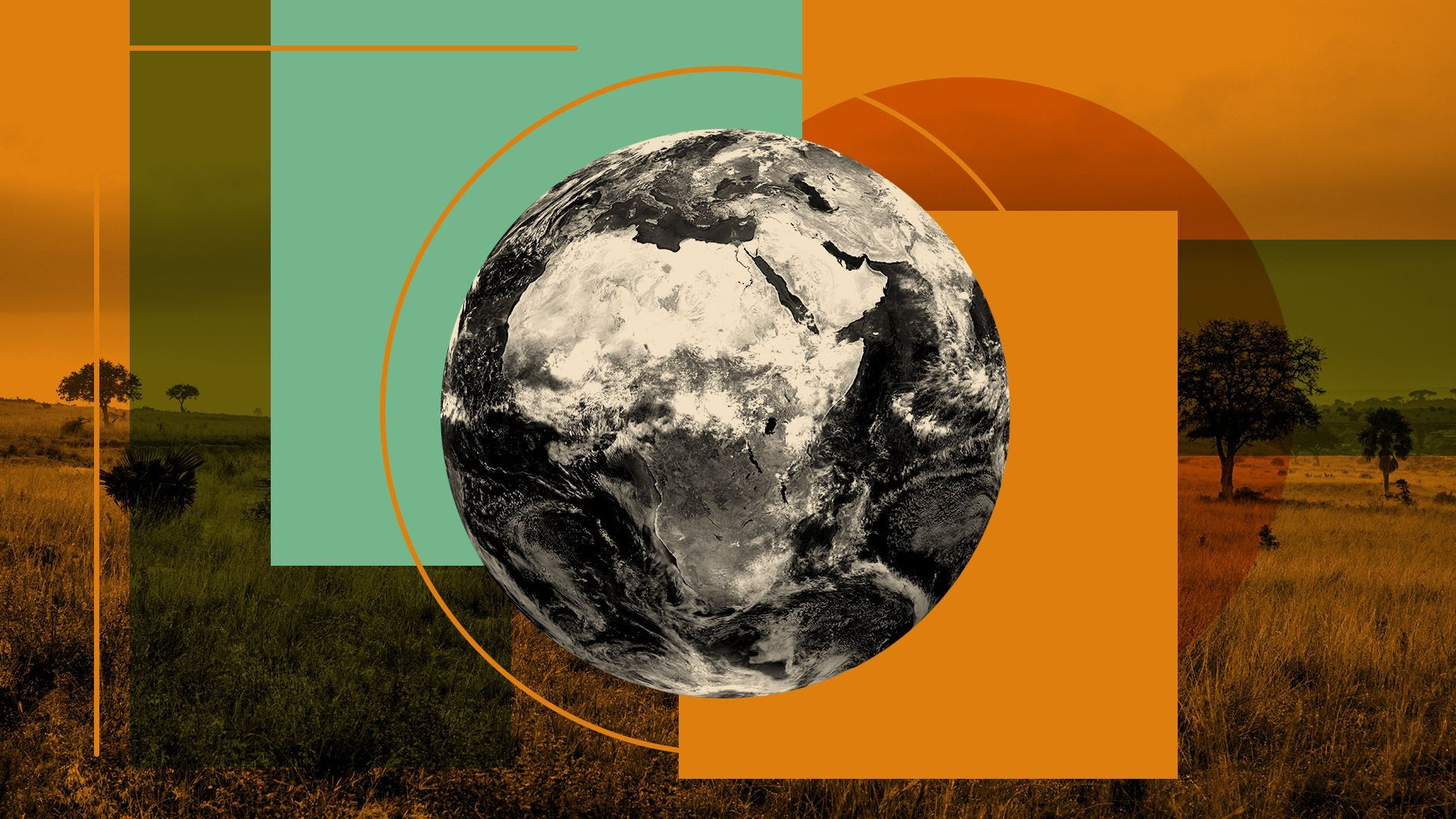


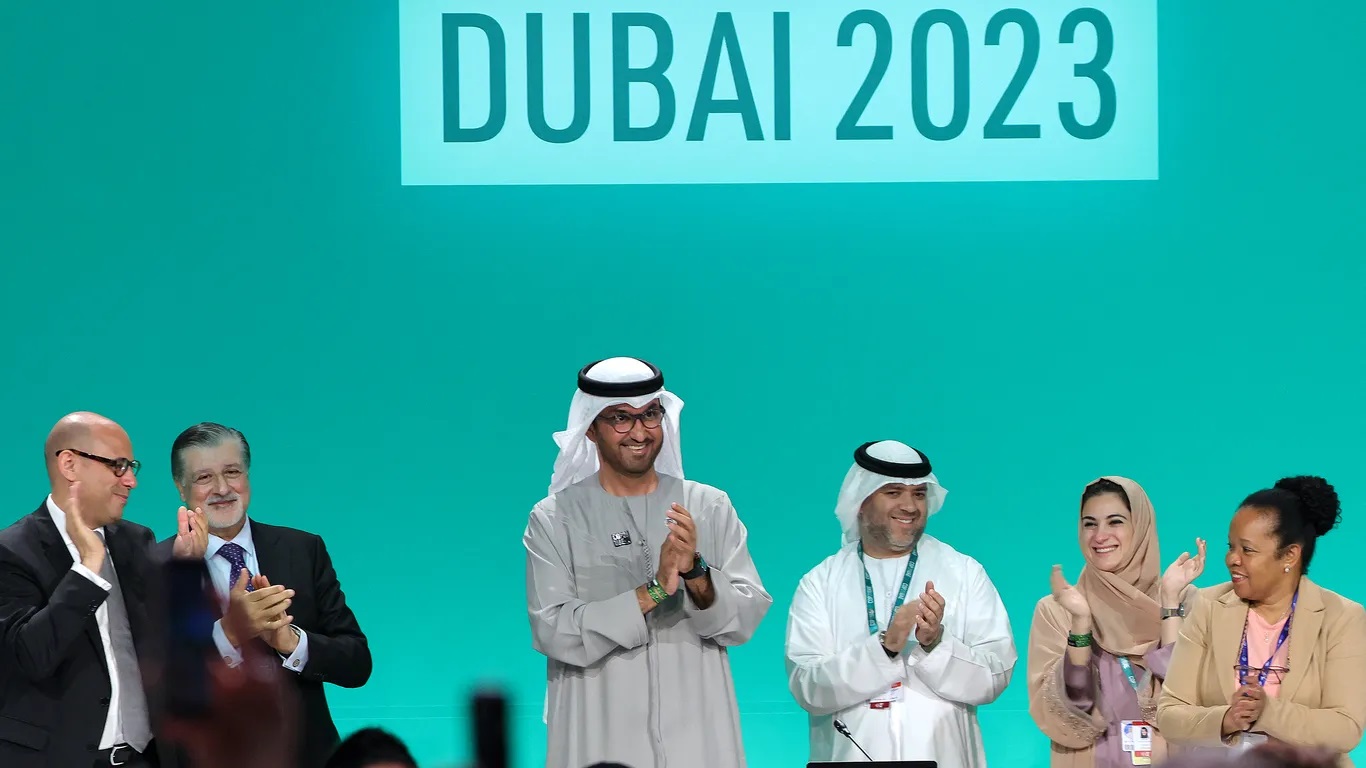
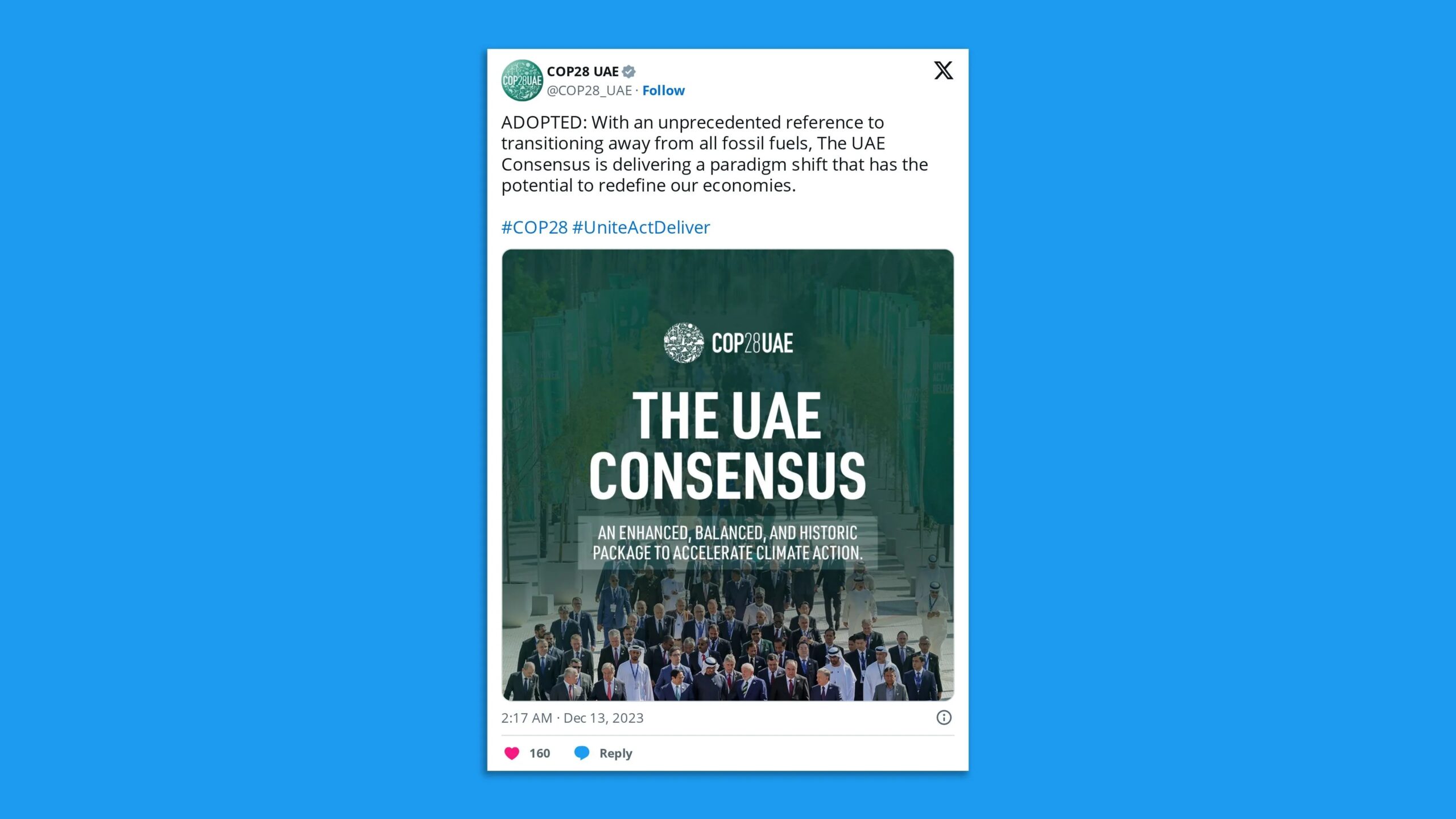

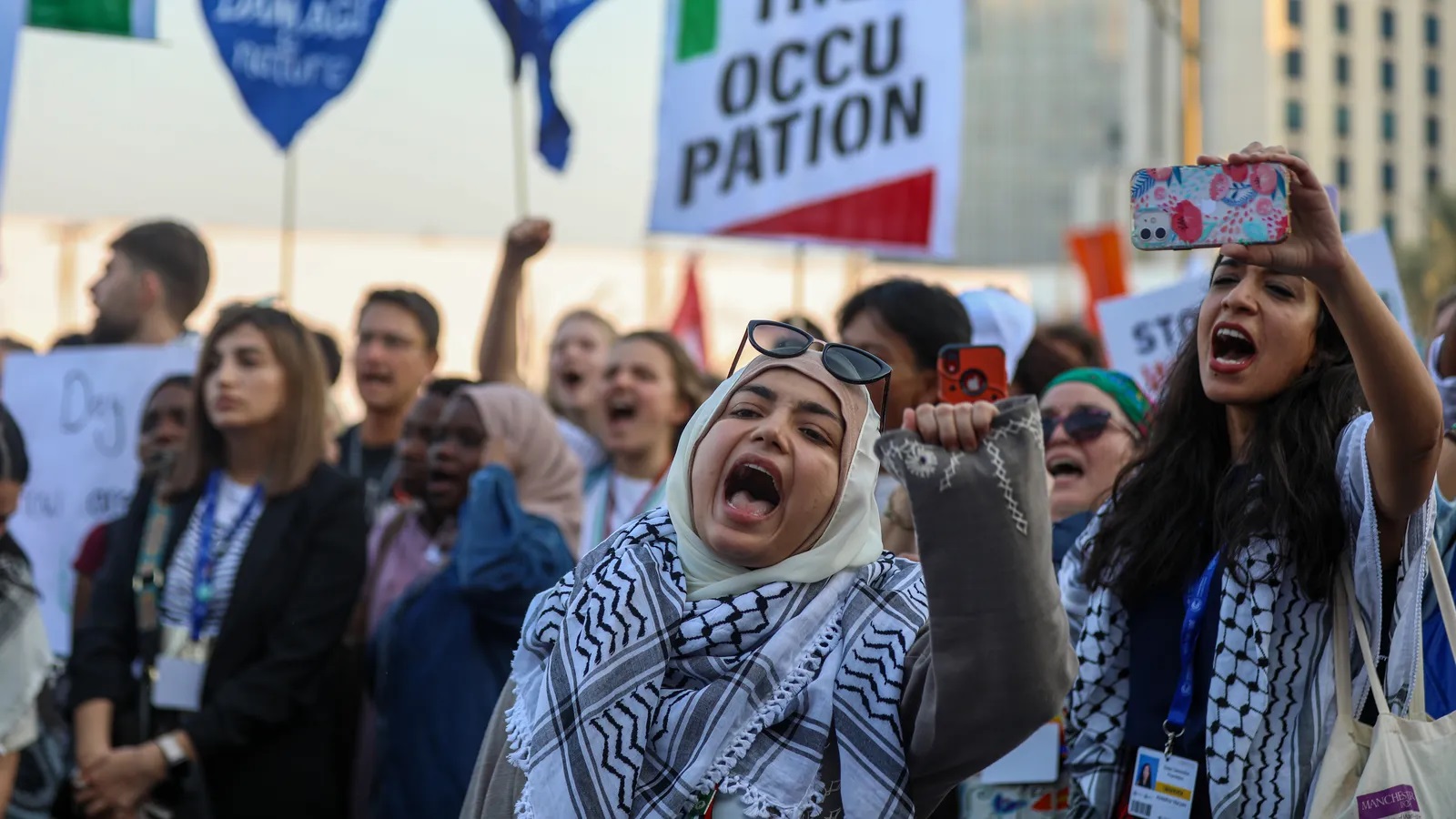
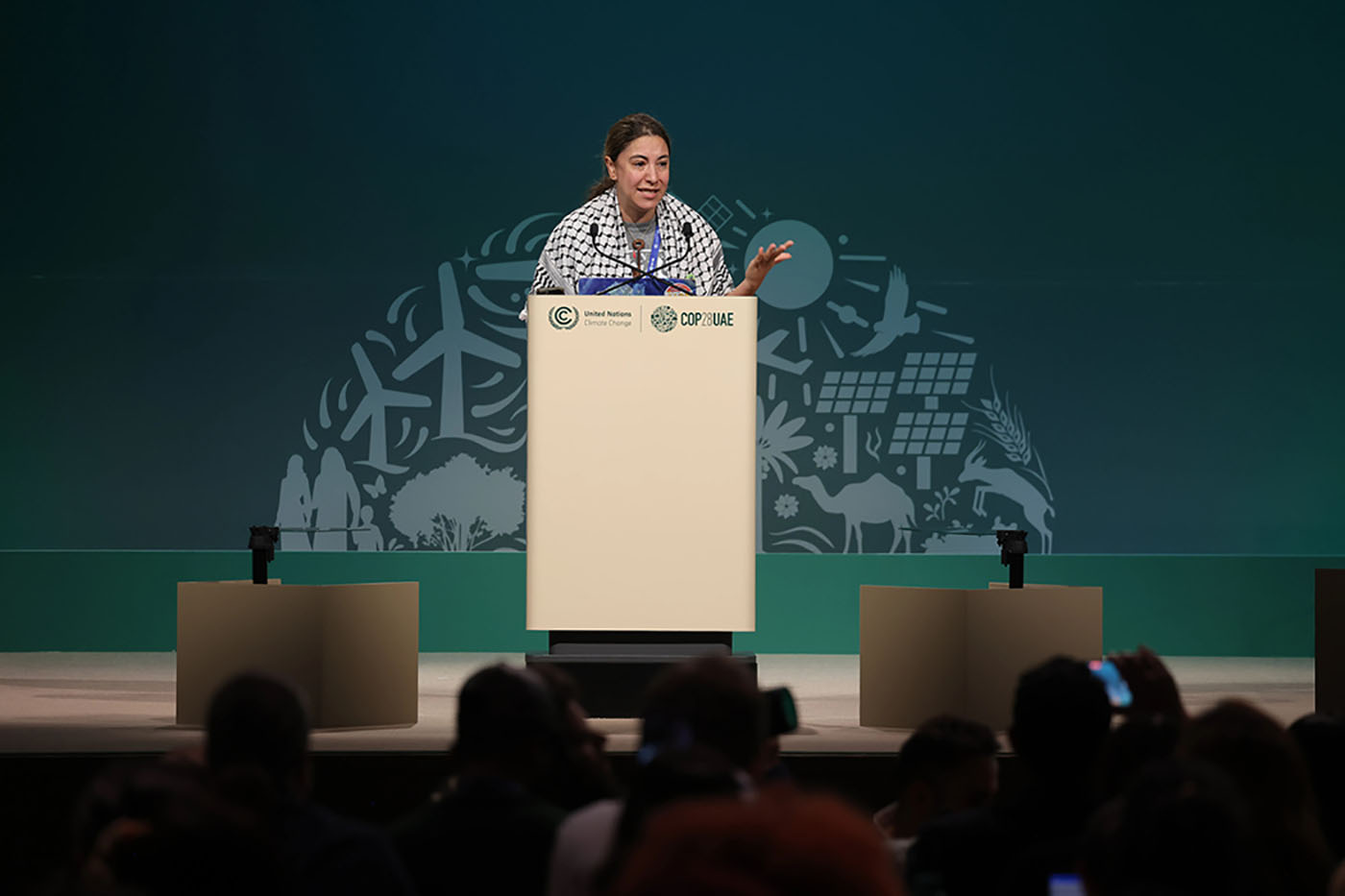
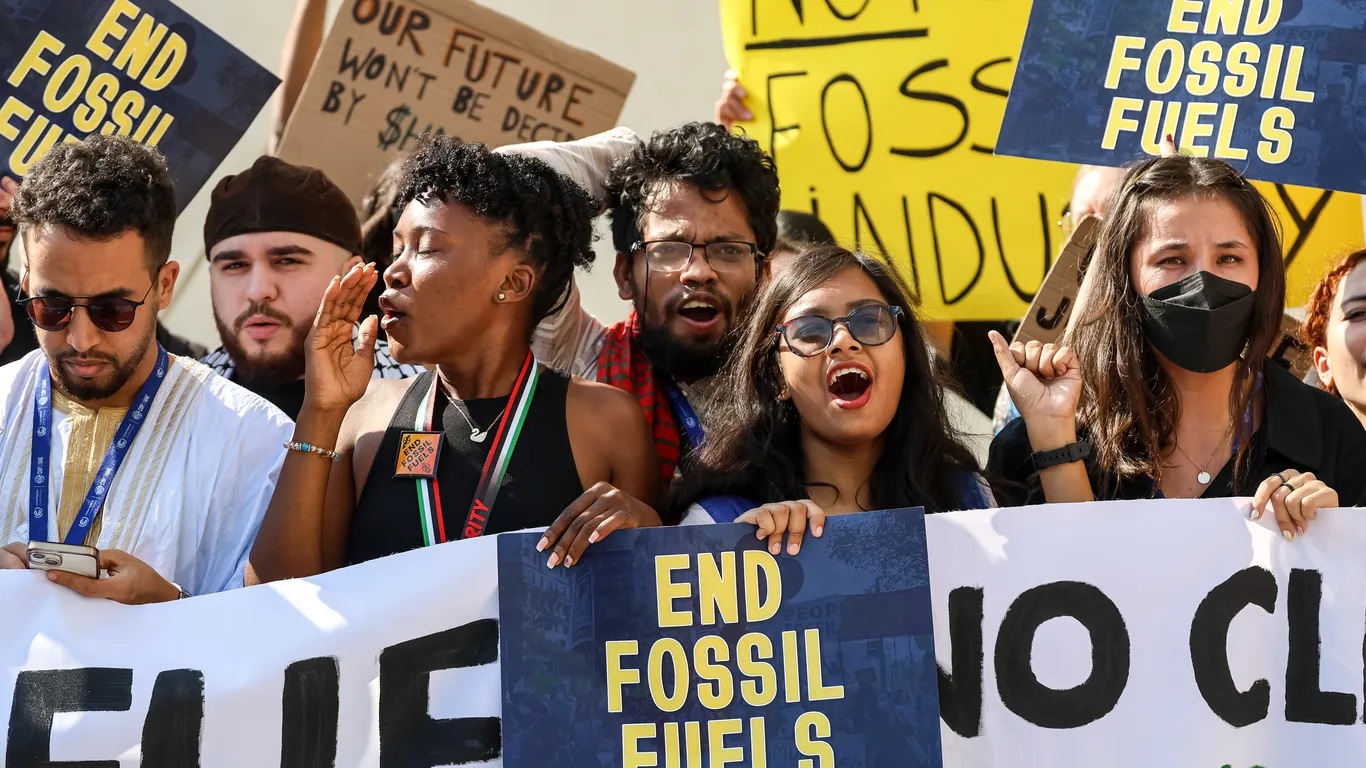
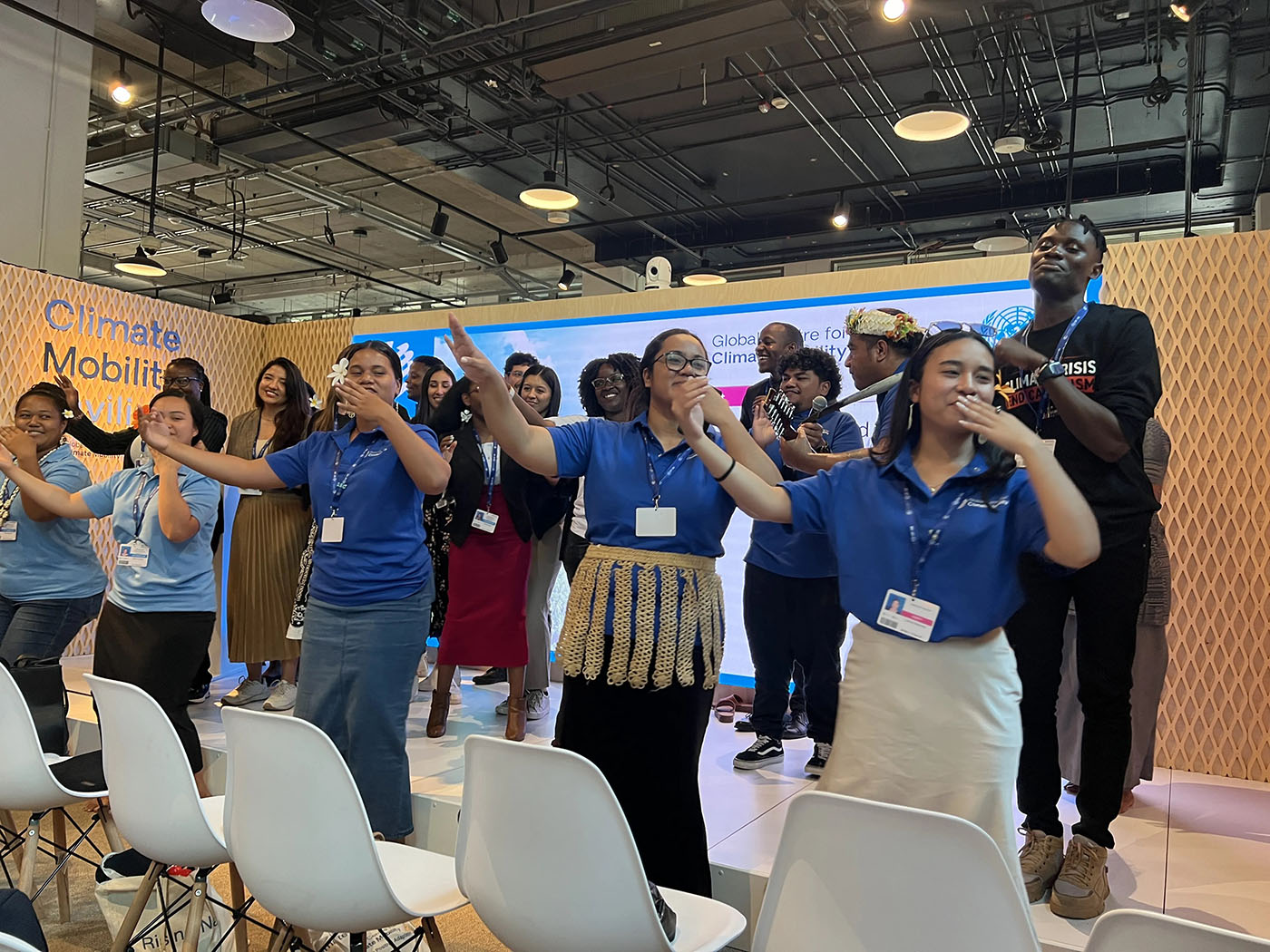
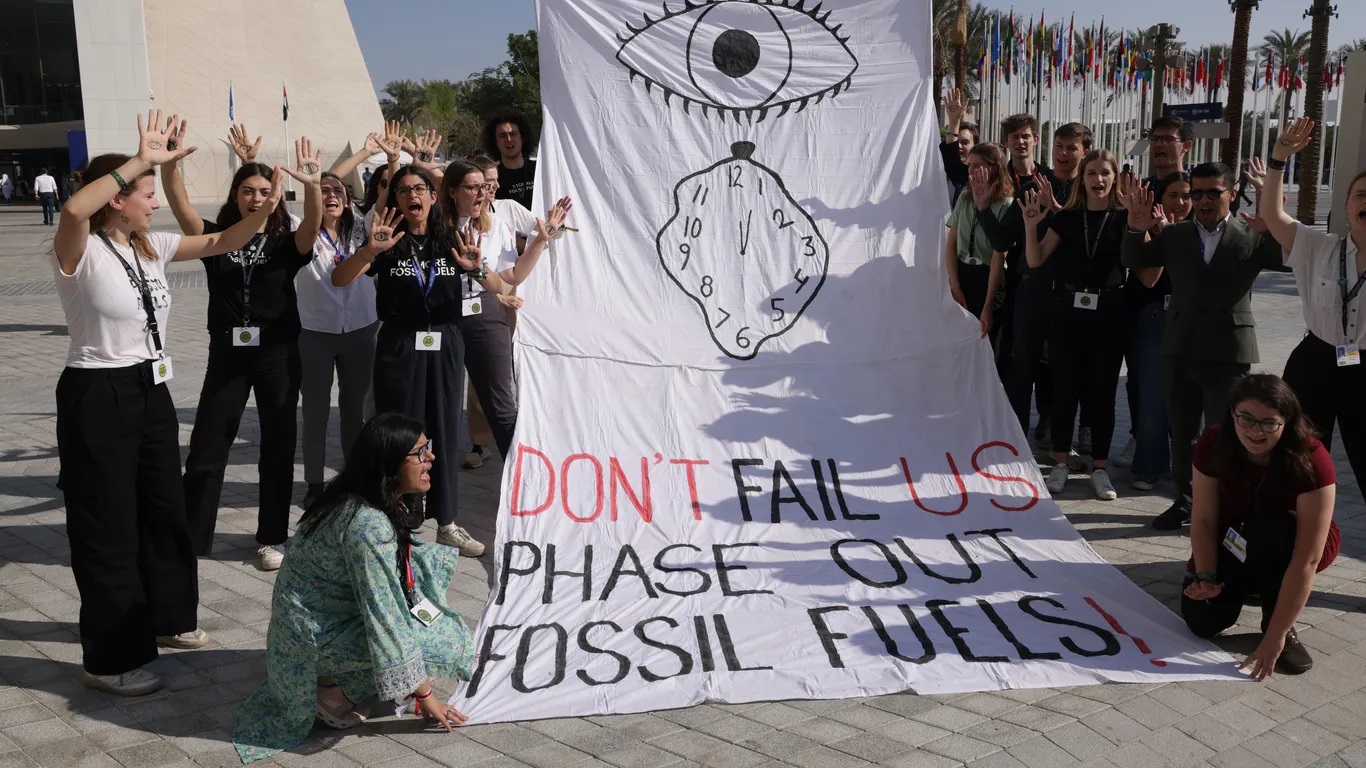
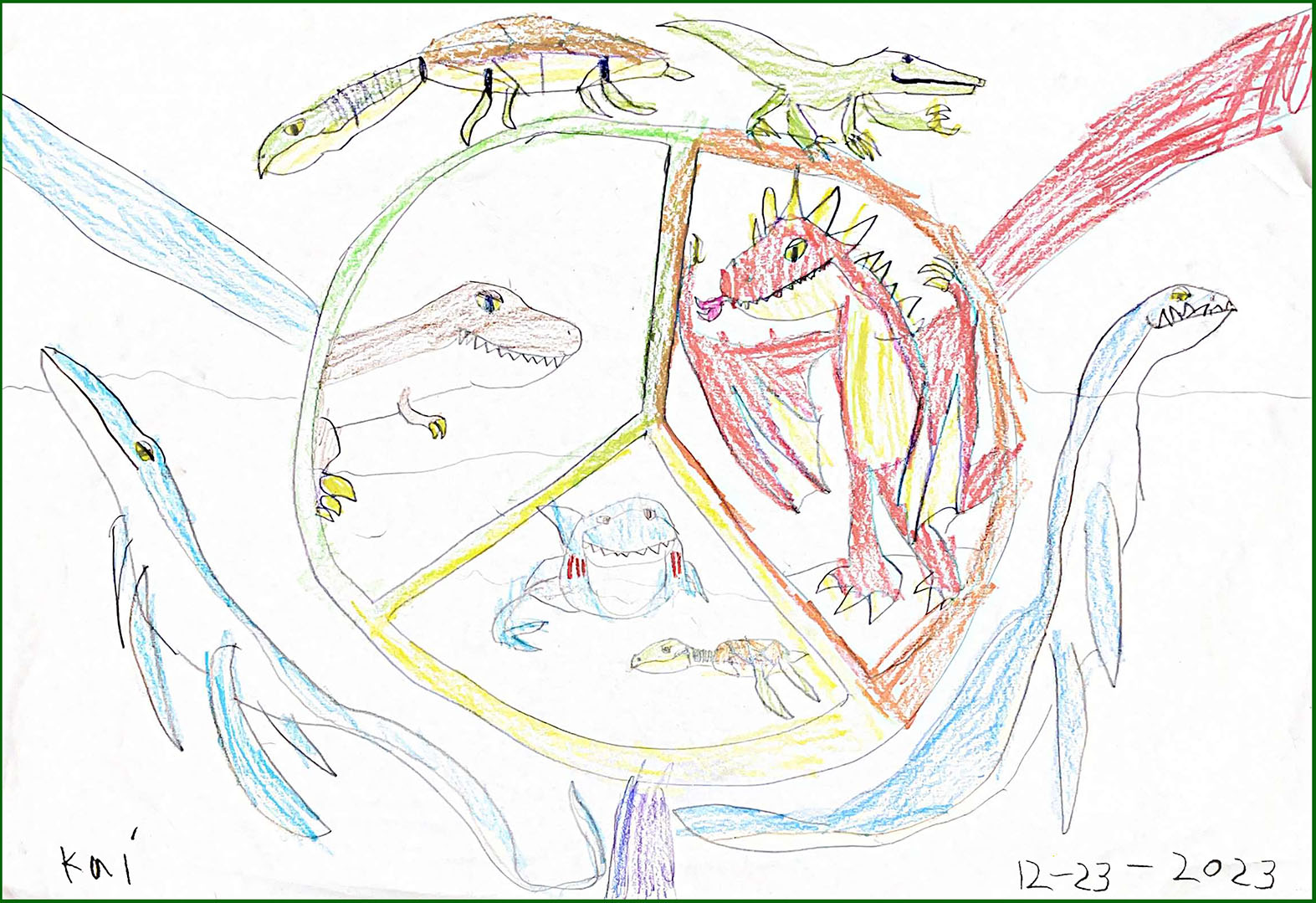
Leave a Reply